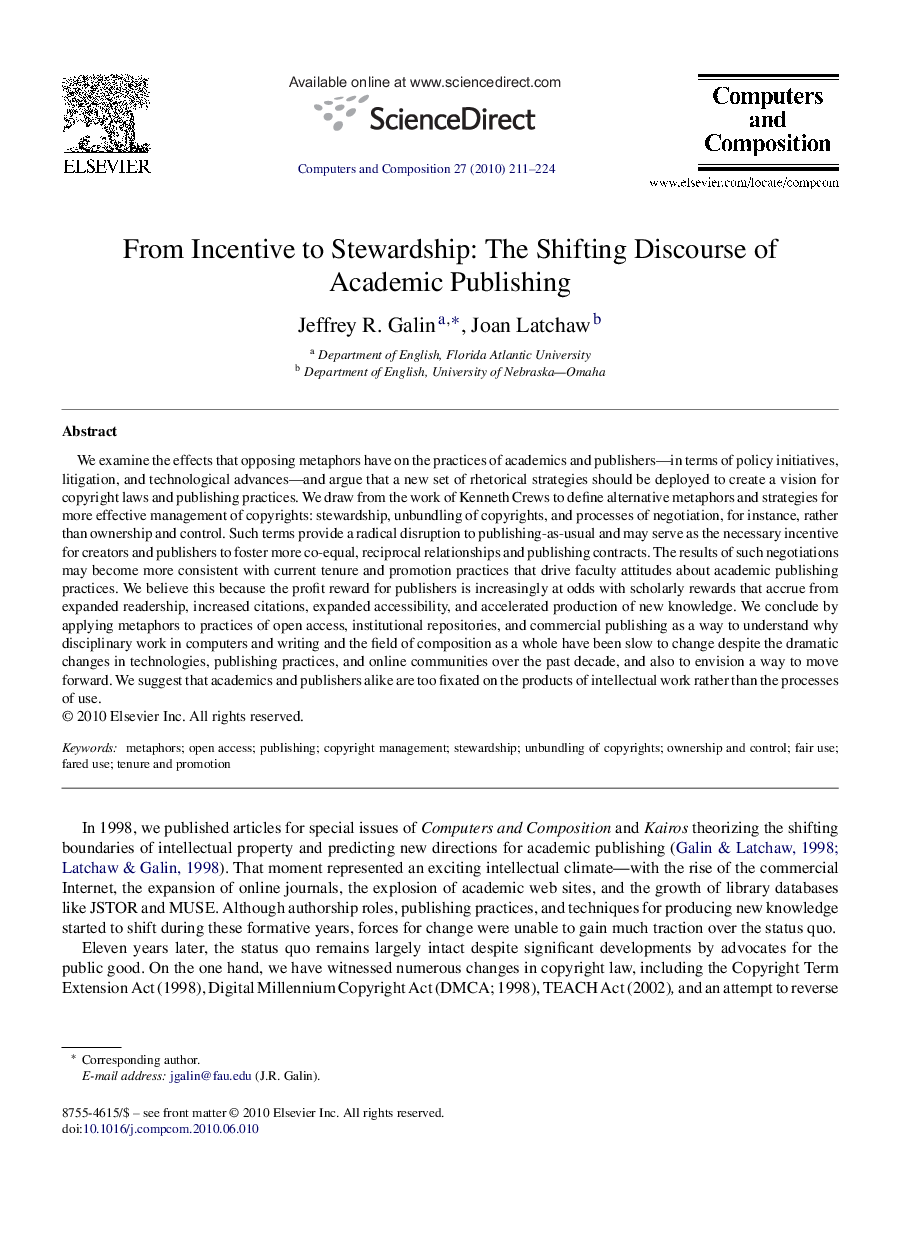| Article ID | Journal | Published Year | Pages | File Type |
|---|---|---|---|---|
| 347943 | Computers and Composition | 2010 | 14 Pages |
We examine the effects that opposing metaphors have on the practices of academics and publishers—in terms of policy initiatives, litigation, and technological advances—and argue that a new set of rhetorical strategies should be deployed to create a vision for copyright laws and publishing practices. We draw from the work of Kenneth Crews to define alternative metaphors and strategies for more effective management of copyrights: stewardship, unbundling of copyrights, and processes of negotiation, for instance, rather than ownership and control. Such terms provide a radical disruption to publishing-as-usual and may serve as the necessary incentive for creators and publishers to foster more co-equal, reciprocal relationships and publishing contracts. The results of such negotiations may become more consistent with current tenure and promotion practices that drive faculty attitudes about academic publishing practices. We believe this because the profit reward for publishers is increasingly at odds with scholarly rewards that accrue from expanded readership, increased citations, expanded accessibility, and accelerated production of new knowledge. We conclude by applying metaphors to practices of open access, institutional repositories, and commercial publishing as a way to understand why disciplinary work in computers and writing and the field of composition as a whole have been slow to change despite the dramatic changes in technologies, publishing practices, and online communities over the past decade, and also to envision a way to move forward. We suggest that academics and publishers alike are too fixated on the products of intellectual work rather than the processes of use.
